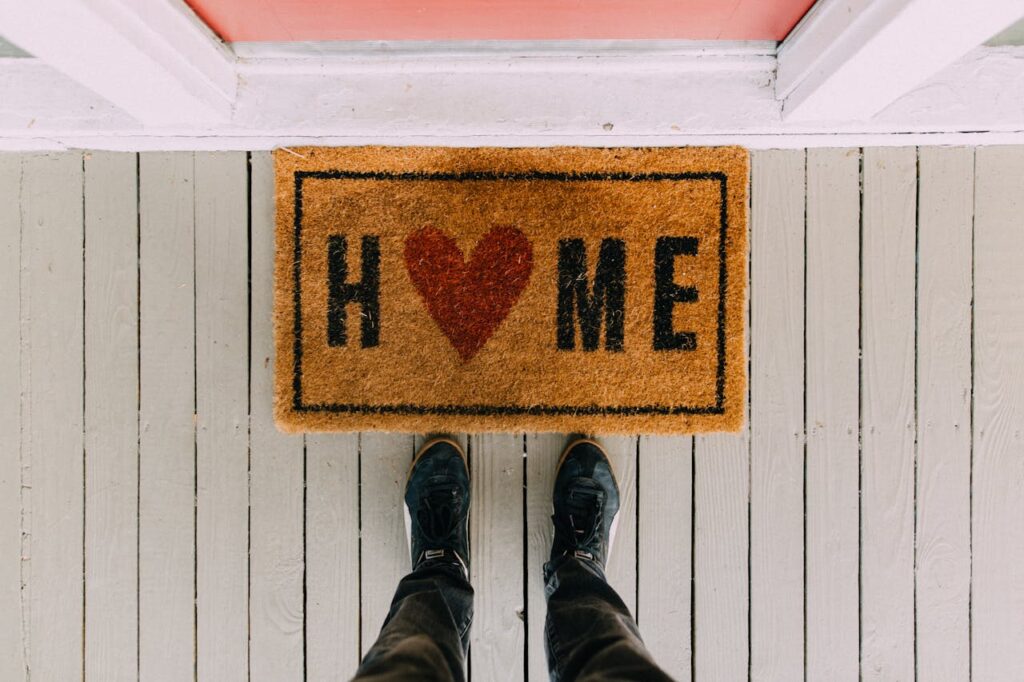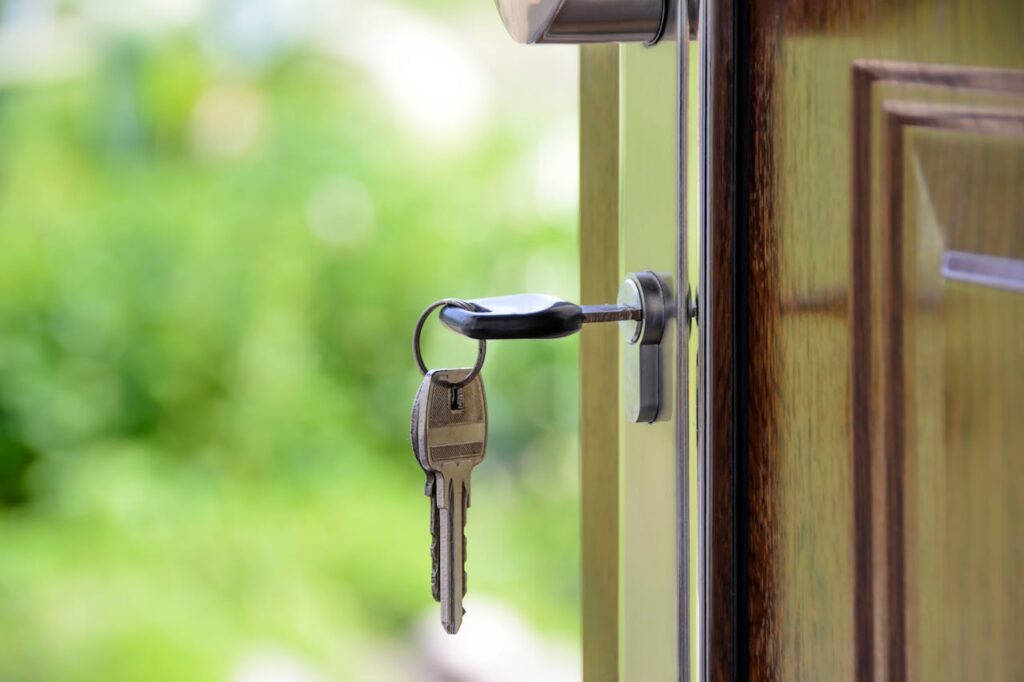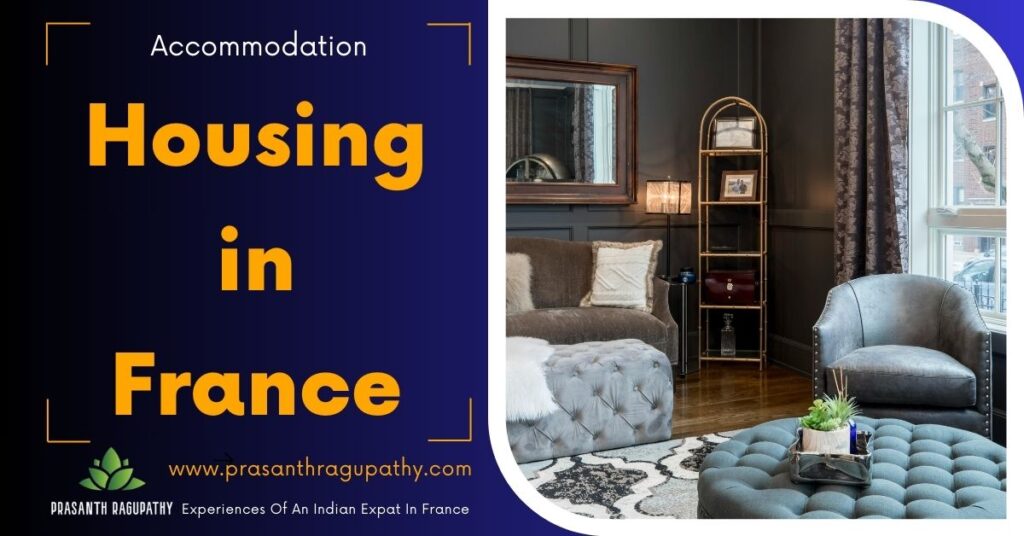Published on: February 13, 2025 | Article No: 302 | By: @rprasanth_kumar
Buying a property in a foreign country can seem like an overwhelming task, but it can also be one of the most rewarding investments you’ll ever make. This article chronicles the personal experiences of Atmadeep Das, sharing the lessons he learned and practical tips to help anyone considering buying property in France.
If you would like to share your personal experiences about life in France, feel free to write to me at Contact Me. So, Let’s dive into his journey of owning a house in France.
After nearly nine years of living in France and spending over €1200 per month on rent, I began to feel that my money was slipping away with no capital gain. This realization pushed me towards an important decision: buying my own home.
Having been in a stable CDI job (Contrat à Durée Indéterminée) for more than five years and holding a Carte de Séjour Passeport Talent (EU Blue Card), I was in a position to consider this seriously.
The Big Decision: Is Buying the Right Move for Me?
Before diving into the home-buying process, I had to answer several crucial questions:
1. What are my long-term goals?: Would I settle permanently in France or eventually return to India? While property investments in France don’t offer the same capital appreciation as in India, being married to a French citizen and having spent a significant part of my life here made the decision easier.
2. Do I have a CDI?: A permanent job (CDI) is essential for securing a home loan in France. Without it, getting a mortgage is nearly impossible unless you have substantial savings. Fortunately, my stable employment status worked in my favor.
3. What’s my budget?: Budgeting was a critical next step. I used online simulations to gauge affordability and consulted my bank for more accurate estimates. Interestingly, banks often offer lower loan amounts than online calculators suggest. Comparing multiple banks is essential, as they have varying lending criteria.
4. Apartment or house?: Initially, I dreamed of owning a house, but I quickly realized that most houses within my budget required significant renovations and maintenance. I ultimately chose a newly built apartment with open space and a garden, perfect for my lifestyle and easier to maintain.
5. New or old property?: New properties come with several advantages: developer warranties, better energy efficiency, potential tax benefits (e.g., €90,000 tax-free on credits), and lower maintenance. However, many new properties are sold “off-plan,” meaning you buy based on designs without physically visiting. Fortunately, I found a newly completed apartment that I could visit before purchasing. I wasn’t willing to buy without seeing it in person.
6. Property preferences: There’s no such thing as a perfect or dream property. I listed my priorities and divided them into categories:
- Must-haves: Terrace, lift (for properties above two floors), open space, proximity to transport, and a location near southern Paris.
- Good-to-have: Features I could adjust or live without if needed.
- Not necessary: Luxury features that weren’t essential.
Flexibility is key because being very rigid with requirements can lead to disappointment. I also questioned how often I’d actually use certain features, helping me make more practical decisions.

The Buying Process: My Step-by-Step Journey
1. Checking with the bank: The first step was confirming how much I could borrow. Online calculators gave me an estimate, but my bank provided a more realistic figure. The final loan offer depended on my salary, debts, and whether I was buying alone or with my spouse.
2. Finding the right apartment: I explored platforms like SeLoger, Bien’ici, and LeBonCoin but eventually found Médicis, a real estate agency specializing in new properties. With my list of priorities in mind, I shortlisted options. Remember, no property will check every box, so prioritize what matters most to you.
3. Reserving the apartment: After finding an apartment that met most of my requirements, I paid a €1,500 deposit to the notary. The agency handled all arrangements, making the process seamless. I had a 7-day cooling-off period to reconsider or back out without penalties.
4. Finding the best loan: Instead of applying to banks individually, I hired a broker (courtier) known as La Centrale de Financement SAS. The broker charged a fee (€2,000) only if I accepted one of their loan offers. Within 30 days, I received multiple offers and chose the best one with a 3.2% interest rate.
5. Choosing the right bank: Interestingly, my bank didn’t offer the best deal. Another bank provided better terms but required me to transfer my salary and savings accounts. Some banks also require a 10-20% deposit, but my bank financed 100% of the loan in exchange for transferring my financial assets.
6. Signing the loan agreement: Once approved, I had a 10-day cooling-off period before signing the final agreement. I also took out several insurance policies (mortgage, property, and security), adding about €130 per month to my costs.
7. The final signing at the notary:
The final step was meeting with the notary to complete the purchase. After signing numerous documents, the property was officially mine. Unlike old properties, I had to wait four more days to receive the keys from the developer.
8. Time to celebrate!: With the keys finally in hand, I celebrated the successful completion of my first property purchase in France with a bottle of champagne!
Comments by Prasanth:
In France (since 2022), our total debt cannot exceed 35% of our income. So, the banks will estimate our total borrowing capacity using our debt ratio (taux d’endettement). You can use this official simulator Calculateur d’endettement to estimate your personal situation.
For example:
- A couple earns €3,500 net per month, and they request for a home loan of €150,000 euros over 15 years (2% including insurance) and the monthly loan repayment (EMI) is estimated to be €1,000.
- So, Total Debt ratio (expenses vs income) is (€ 1,000 / € 3,500)* 100 = 28.6%.
- This amount is less than 35% of the couple’s total financial resources per month and so their loan application might get approved. If they request for a new loan, it is likely to be refused and in fact getting into debt beyond that amount would not be reasonable.
Banks consider the following when granting a loan/mortgage:
- Monthly Expenses: Rent, current loan repayments, credit card debt, child support, etc.
- Monthly Income: Salary, other income, savings, rental income, bank interests, dividends, capital gains, etc.

Lessons Learned and Key Takeaways
1. Rent vs. mortgage: Committing to a mortgage is a long-term responsibility (15-20 years). Make sure you’re ready.
2. Location matters: I chose a place near Paris with excellent transport links (direct RER to central Paris) and local amenities within walking distance.
3. Future planning: Though it’s my primary residence for now, I considered its future potential as a rental investment.
4. Loan requirements: Some banks offer loans to couples with one partner on a CDI and the other on a CDD. (For example, La Banque Postale approved a loan for me and my wife, even though she was on a CDD.)
5. Hidden costs and savings: Notary fees can be as high as 20%, but some developers offer fee waivers. New properties may also come with tax benefits.
6. Paperwork isn’t overwhelming: Have essential documents (bank statements, ID, tax returns) ready to streamline the process.
7. The role of a broker: Hiring a broker saved me time and effort. They handled negotiations and found the best loan offer with minimal hassle.
Comments by Prasanth:
On average, Notary Fees (frais de notaire) in France is around 2-3% of the total purchase price for a new property and around 7-8% for an old building.
Here is an official online simulator to estimate the notary fees based on criteria such as new/old property, postal code, etc: frais-dacquisition-dits-frais-de-notaire
2025 France budget increased the notary fees by 0.5%. More details about the 2025 budget in Budget in France: Projet de loi de finances – PLF 2025.
Final Thoughts
Many assume that buying property in France is overly complex, but my experience proved otherwise. The entire process took about 3-4 months, including minor delays due to summer holidays and the 2024 Olympics.
If you’re considering buying a home in France, the process is smoother than it seems, especially if you speak French (most paperwork and negotiations are conducted in French).
Support This Blog!
If you’ve found my articles helpful and you want to say thanks, a cup of coffee or two is very much appreciated!. Please help keep it going!
DISCLAIMER
Except the introduction, adding the official references and some formatting, the article has been published as received.
Any finance-related information shared is not professional legal, tax, or investment advice. The information provided is of an educational and general nature and is not investment advice within the meaning of Articles L. 321-1 and D. 321-1 of the French Monetary and Financial Code. Investment carries risks of loss and past performance does not guarantee future performance. Please consult a financial advisor for any professional advice.



Excellent !
Thank you Atmadep for sharing your experience.
Many Thanks to Prashant for sharing it!
Me too in the process of buying my primary residence country side of France, Normandie.
Just a question on the Notary, you said its new apartment 20% isn’t it too high for new property ?
From my courtier he said its 8% on old property and on new its 3-4%. Is it depend on the location of property ?
Meanwhile you motivated me to share my experience, once complete I will try to share it for House at country side.
Regards,
Ashish
Hello Ashish,
Notary Fees (frais de notaire) depends on so many factors including the location of the property. On average, it is around 2-3% of the total purchase price for a new property and around 7-8% for an old one. More details in https://www.service-public.fr/particuliers/vosdroits/F17701 and https://www.economie.gouv.fr/particuliers/frais-notaire-achat-immobilier#
Here is an official online simulator to estimate the notary fees based on criteria such as new/old property, postal code, etc https://www.anil.org/outils/outils-de-calcul/frais-dacquisition-dits-frais-de-notaire/
Note: 2025 France budget increased the notary fees by 0.5%. More details about 2025 budget in https://prasanthragupathy.com/2025/02/budget-in-france-projet-de-loi-de-finances-2025/
Cheers,
Prasanth
Thanks for this article. Do you have any inputs regarding the downpayment (apport) for the loan ? I have heard people saying it should be around 20% of the property value.
Hello Arun,
The minimum downpayment(apport personnel) of 10% is usually required and the optimum downpayment is 20-30% of the total purchase cost of property.
Cheers,
Prasanth
Comment shared by a reader on WhatsApp:
Thanks Prashanth for sharing. Nicely detailed by Atmadeep. I can add my expérience dealing with PTZ (Pret à taux zéro) and Action logement that offers interest free loans for buying your first property in France. There are several checkpoints you need to consider for being eligible to avail these benefits, for example:
—The property must be under construction (VEFA : vente en l’état futur d’achèvement ).
— buyer should not be owning any other property in France ( ideally this should be his/her first investment). For me I had to literally prove with all my bills and rental records of the past few years.
— buyer’s Avis de imposition for past 2 years should be less than certain amount (depending on regions ). For my case it worked well as I finished the Phd and got CDI directly after that. So my revenue fiscal de référence during phd times was not exceeding the amount.
Cheers,
Akash